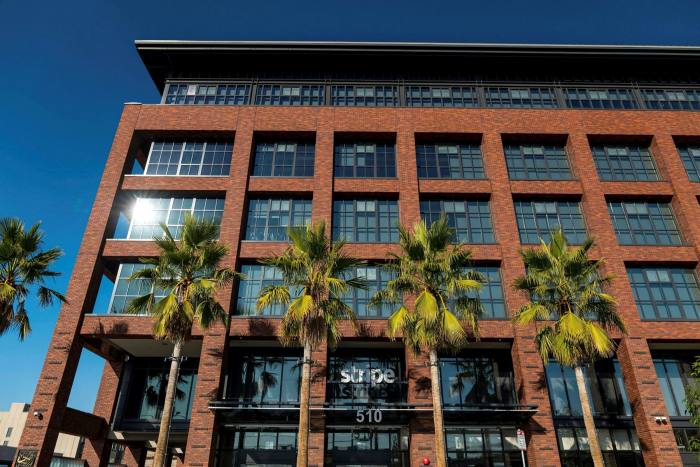Stripe valuation soars to $95bn after latest fundraising
[ad_1]
Stripe has become the most valuable private company Silicon Valley has produced, after investors struck a deal valuing the online payments processor at $95bn.
Participants in Stripe’s latest financing, which raised $600m of new equity, include Ireland’s National Treasury Management Agency, Allianz, Fidelity, Baillie Gifford, AXA and Sequoia Capital.
Founded in 2010 by Irish brothers Patrick and John Collison — now aged 32 and 30 — Stripe’s valuation has almost tripled in less than a year, surpassing those achieved by Facebook and Uber before they went public.
The company’s rising valuation reflects a boom in ecommerce and digital payments activity that has boosted the values of listed rivals such as Adyen and Square, as well as Checkout.com, a London-based payments start-up that was valued at $15bn in January.
However, some investors have questioned the sustainability of surging tech valuations, as rising inflation expectations send ripples through the US bond market and vaccine rollouts accelerate the reopening of locked-down economies.
The Biden administration’s $1.9tn stimulus bill has also drawn investors towards “old economy” sectors, such as banks and industrials.
Stripe has ridden the wave of ecommerce growth, with more than 200,000 new companies in Europe signing up to the platform since the start of the pandemic. John Collison said its systems handled almost 5,000 requests a second in 2020, including payments, refunds, customer data checks and other queries to its application programming interface.
“Stripe itself is now bigger [by payment volumes] than the entire ecommerce market was when we started working on Stripe,” he added.
200,000
Number of new companies in Europe that signed up to the platform since the start of the pandemic
Former Bank of England governor Mark Carney and Christa Davies, chief financial officer at Aon, both joined Stripe’s board earlier this year. The company also brought in Dhivya Suryadevara from General Motors as chief financial officer.
Despite the new CFO and board members, whose appointments are often seen as forerunners to a public listing, Stripe has opted to stay private at a time when many other tech companies are going public.
Keeping away from the public markets has allowed Stripe to keep a tight lid on financial details; it has not disclosed revenues or profitability.
However, a person close to the San Francisco-based company said it handles a larger volume of payments than its European rival Adyen, which has a market capitalisation of €60bn and processed €303.6bn in 2020.
Stripe’s latest funding will fuel its expansion in Europe, including a plan to hire 1,000 more people in its Dublin office over the next five years, and support forthcoming launches in Brazil, India and Indonesia later this year.
Investors previously valued Stripe at $35bn in September 2019 before adding $600m to that financing as the pandemic spread last April.
The Collison brothers founded Stripe after swapping Limerick for Silicon Valley to sell their first company, a tool for eBay sellers called Auctomatic, for more than €3m in 2008. That deal turned the then teenagers into millionaires.
Early investors in Stripe included PayPal founders Elon Musk and Peter Thiel, as well as Silicon Valley’s influential start-up accelerator, Y Combinator.
Today, Stripe’s valuation is higher than the $80bn mark Facebook received from private secondary trades before its initial public offering in 2012. Uber’s valuation rose as high as $72bn before its IPO in 2019.
Stripe has also leapfrogged Elon Musk’s rocket company SpaceX, which briefly became the largest venture-backed company in the US after investors gave it a $74bn valuation last month. Globally, it lags behind only ByteDance, the $180bn Chinese parent of TikTok, and Ant Group, the fintech company that was forced to delay its listing last year.
Stripe, which takes a cut of each transaction is processes, started out selling payments services to developers at other tech start-ups, allowing it to piggyback on some of the world’s fastest-growing companies.
Customers now include enterprise software companies Zoom, Salesforce and Atlassian, and ecommerce services Shopify, Instacart and Deliveroo, as well as Uber and Facebook-owned Instagram.
Read More



